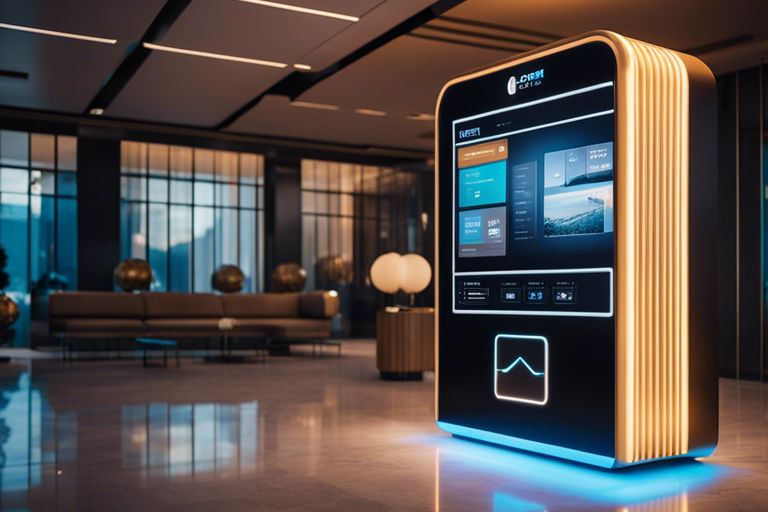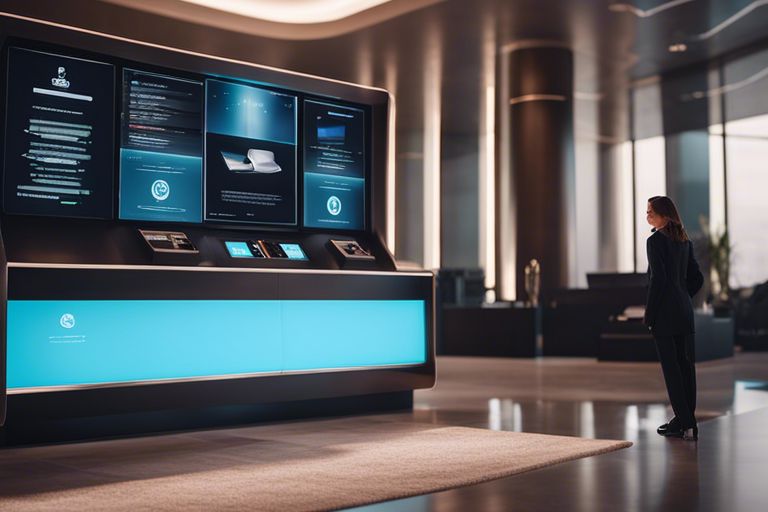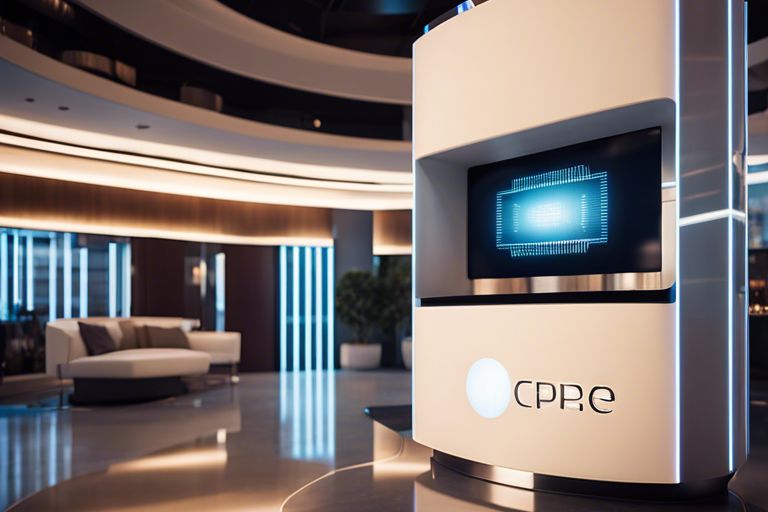Efficacious customer engagement is crucial for the success of any business in the hospitality industry, and the use of chatbots is becoming increasingly prevalent in the hotel sector. With the advancements in artificial intelligence and machine learning, chatbots are revolutionizing the way hoteliers interact with their guests. In this blog post, we will explore the potential of chatbots as the future of customer engagement in the hotel industry, and the benefits they offer in providing personalized and efficient services to guests.
Table of Contents
- 1 Role of Chatbots in Modern Customer Service
- 2 Advantages of Chatbots in the Hotel Industry
- 3 Challenges and Limitations
- 4 Case Studies
- 5 To wrap up
- 6 FAQ
- 6.0.1 Q: What are chatbots in the hotel industry?
- 6.0.2 Q: How do chatbots improve customer engagement in the hotel industry?
- 6.0.3 Q: Are chatbots cost-effective for hotels?
- 6.0.4 Q: What are the potential challenges of implementing chatbots in the hotel industry?
- 6.0.5 Q: Can chatbots replace human interaction in the hotel industry?
Key Takeaways:
- Improved efficiency: Chatbots can improve customer service by providing quick and efficient responses to common queries, freeing up staff to focus on more complex tasks.
- 24/7 customer support: Chatbots can provide round-the-clock customer support, addressing customer inquiries and requests at any time of day or night.
- Personalized interactions: Chatbots can use data and AI to provide personalized recommendations and offers based on customer preferences and past interactions.
- Crisis management: Chatbots can assist in managing crisis situations by disseminating information and addressing customer concerns in a timely manner.
- Integration with other systems: Chatbots can be integrated with other hotel systems, such as booking and payment platforms, to provide a seamless and convenient experience for customers.
Role of Chatbots in Modern Customer Service
Assuming the role of technology in the hospitality industry, chatbots have emerged as a game-changing tool for modern customer service. With the rise of AI-powered solutions, chatbots are transforming the way hotels engage with their guests and streamline their operations. For a detailed guide on AI chatbots in the hospitality industry, check out AI Chatbots in the Hospitality Industry: An In-Depth Guide.
Enhancing Customer Experience
With the implementation of chatbots, hotels can enhance the customer experience by providing immediate and personalized assistance to their guests. Chatbots can efficiently handle routine inquiries, room reservations, and provide recommendations for local attractions, dining options, and more. This level of instant support contributes to improved guest satisfaction and loyalty, ultimately leading to positive reviews and repeat bookings.
Moreover, chatbots can be integrated with existing hotel apps and websites, offering a seamless and user-friendly interface for guests to interact with. By leveraging natural language processing and machine learning, chatbots can understand and respond to guests’ queries in real-time, delivering a personalized and attentive experience that resonates with today’s tech-savvy travelers.
Streamlining Operations and Costs
Role of chatbots extends beyond customer engagement to streamlining operations and reducing costs for hotels. By automating routine tasks such as booking confirmations, check-in/out processes, and handling frequently asked questions, chatbots free up staff members to focus on more complex guest requests and provide high-touch service. This operational efficiency not only increases productivity but also leads to cost savings for the hotel, as fewer resources are required to manage day-to-day operations.
Operations in areas such as housekeeping management, inventory tracking, and maintenance requests can also benefit from chatbot integration, leading to improved efficiency and resource allocation. With the ability to handle multiple inquiries simultaneously, chatbots ensure that no guest request goes unanswered, optimizing the overall operational workflow and guest satisfaction.

Advantages of Chatbots in the Hotel Industry
The use of chatbots in the hospitality industry has opened up a whole new world of possibilities for customer engagement. Chatbots offer a range of benefits for both hoteliers and guests, making them an invaluable tool for enhancing the overall guest experience. To learn more about how chatbots are revolutionizing the hospitality industry, check out this informative article on Chatbots and the Hospitality Industry.
24/7 Customer Support
Hotels have traditionally relied on staff to provide round-the-clock customer support, but this can be costly and inefficient. With chatbots, hotels can offer 24/7 customer support without the need for additional staff. Guests can have their queries addressed instantly, whether it’s booking a room, inquiring about amenities, or seeking local recommendations. This not only enhances the guest experience but also frees up hotel staff to focus on other critical tasks.
Personalized Guest Experiences
Supporting personalized guest experiences is the key to building long-term customer relationships in the hotel industry. Chatbots play a crucial role in this by leveraging guest data to provide personalized recommendations, special offers, and tailored services. By analyzing guest preferences and behavior, chatbots can offer bespoke experiences that delight customers and encourage repeat bookings. This level of personalization sets hotels apart and creates a strong competitive advantage in the crowded hospitality market.
Customer satisfaction, loyalty, and retention are all significantly influenced by the level of personalization and attention to detail a hotel can provide. Chatbots empower hoteliers to meet these expectations by delivering personalized services, responding to guest inquiries, and facilitating a seamless booking process, thus creating a truly unforgettable experience for their guests.
Challenges and Limitations
Despite the potential benefits of using chatbots in the hotel industry, there are several challenges and limitations that need to be considered.
Technical Limitations
Any implementation of chatbots in the hotel industry faces technical limitations. Chatbots rely on natural language processing and artificial intelligence to understand and respond to user queries. However, current technology still struggles to fully understand the context, nuances, and complexities of human language. This can result in misunderstandings and frustration for guests trying to communicate with a chatbot. Additionally, chatbots may not always have access to the most up-to-date information, leading to incomplete or inaccurate responses.
Furthermore, there are concerns about the security and privacy of guest data when interacting with chatbots. Any technical issues or data breaches could potentially damage the reputation of the hotel and erode trust with guests. It is crucial for hoteliers to carefully consider these technical limitations and ensure that the implementation of chatbots does not compromise the quality of service or the security of guest information.
Human Touch and Guest Satisfaction
Human interaction has always been a cornerstone of the hospitality industry, and the lack of a personal touch is a major concern when it comes to using chatbots for customer engagement. Human hospitality staff can provide empathy, warmth, and personalized attention to guests, which are difficult for chatbots to replicate. Human intuition and emotional intelligence play a crucial role in understanding and addressing the needs of guests, something that chatbots currently lack. There is also a concern that overreliance on chatbots could lead to a decline in guest satisfaction, as some guests may prefer the authenticity of human interaction over automated responses.
However, it is important to note that chatbots can still play a valuable role in customer engagement when used in conjunction with human staff. It is crucial to strike a balance between the use of technology and the human touch to ensure that guest satisfaction is not compromised. Hoteliers need to carefully consider how to integrate chatbots into their customer engagement strategy while continuing to prioritize the human element of hospitality.

Case Studies
Keep up with the latest trends in customer engagement in the hotel industry by examining the following case studies:
- A case study from Capella Solutions demonstrates how AI chatbots have improved customer service in the hospitality industry. The study showcases a 40% increase in customer satisfaction and a 20% reduction in response time since the implementation of AI chatbots. More details on this case study can be found here.
- Another case study highlights a global hotel chain that experienced a 30% decrease in customer service costs and a 25% increase in revenue after integrating chatbots into their customer engagement strategy.
- A boutique hotel in a popular tourist destination saw a 50% reduction in booking process time and a 35% increase in upsell revenue following the implementation of AI chatbots.
Successful Implementations in Hotels
On the successful side, several hotels have effectively integrated chatbots into their customer service operations, resulting in improved customer satisfaction and increased revenue. These implementations showcase the potential of AI chatbots to elevate the overall guest experience and streamline hotel operations.
Lessons Learned and Best Practices
To ensure successful implementation, hotels should consider factors such as customization, integration with existing systems, and ongoing training for staff. By learning from past experiences and adopting best practices, hotels can maximize the benefits of AI chatbots for customer engagement.
For instance, hotels should prioritize personalization and seamless integration with other customer service channels to ensure a cohesive and efficient guest experience.
To wrap up
With these considerations, it is evident that chatbots have the potential to revolutionize customer engagement in the hotel industry. By providing personalized assistance, quick responses, and round-the-clock availability, chatbots can enhance guest experience and streamline operations for hotel staff. However, it is important for hotels to carefully consider the implementation of chatbots to ensure they complement, rather than replace, the human touch in hospitality. As technology continues to advance, chatbots are likely to play an increasingly significant role in customer engagement in the hotel industry.
FAQ
Q: What are chatbots in the hotel industry?
A: Chatbots in the hotel industry are AI-powered virtual assistants that can interact with guests to provide information, make reservations, and address customer service inquiries.
Q: How do chatbots improve customer engagement in the hotel industry?
A: Chatbots improve customer engagement by providing 24/7 assistance, personalized recommendations, and quick responses to guest inquiries, enhancing the overall guest experience.
Q: Are chatbots cost-effective for hotels?
A: Yes, chatbots are cost-effective for hotels as they reduce the need for additional staff, can handle multiple guest inquiries simultaneously, and help in upselling hotel services.
Q: What are the potential challenges of implementing chatbots in the hotel industry?
A: Potential challenges include ensuring accurate language processing, maintaining a balance between automated and human interaction, and addressing data privacy concerns.
Q: Can chatbots replace human interaction in the hotel industry?
A: While chatbots can handle routine inquiries, bookings, and requests, human interaction is still essential for delivering exceptional personalized service and addressing complex guest needs.










